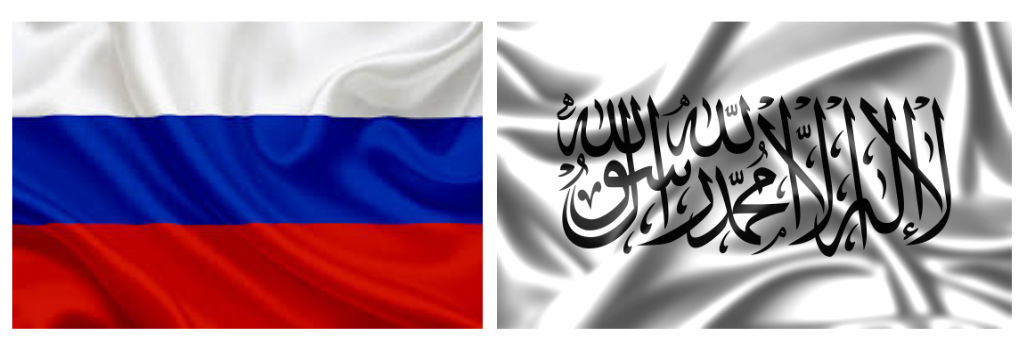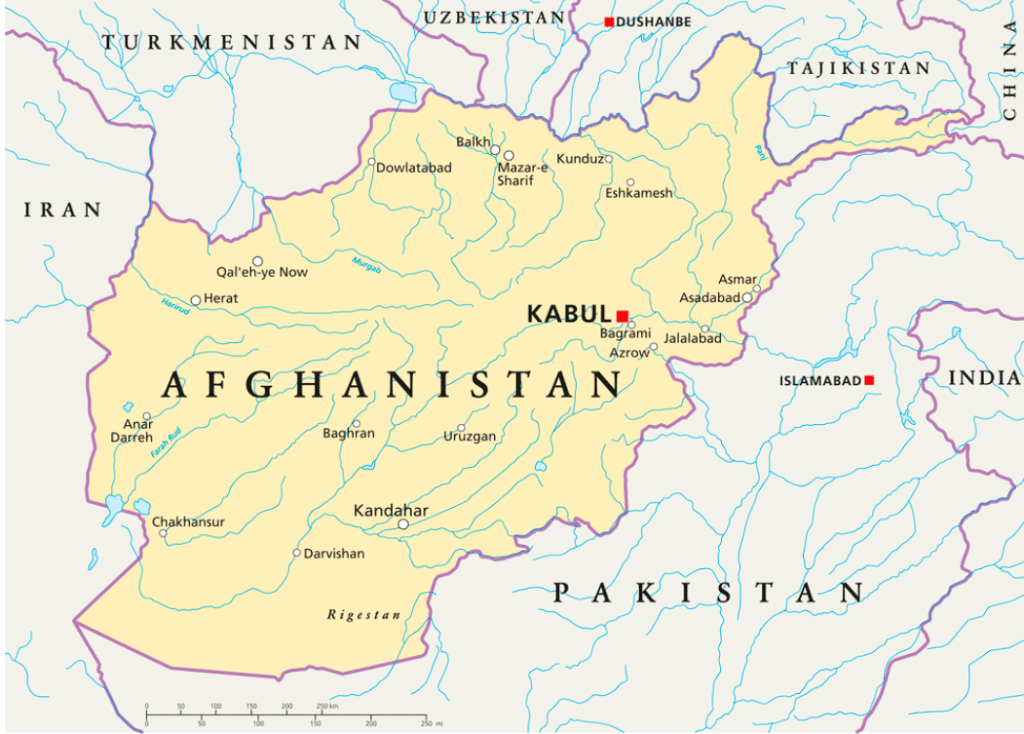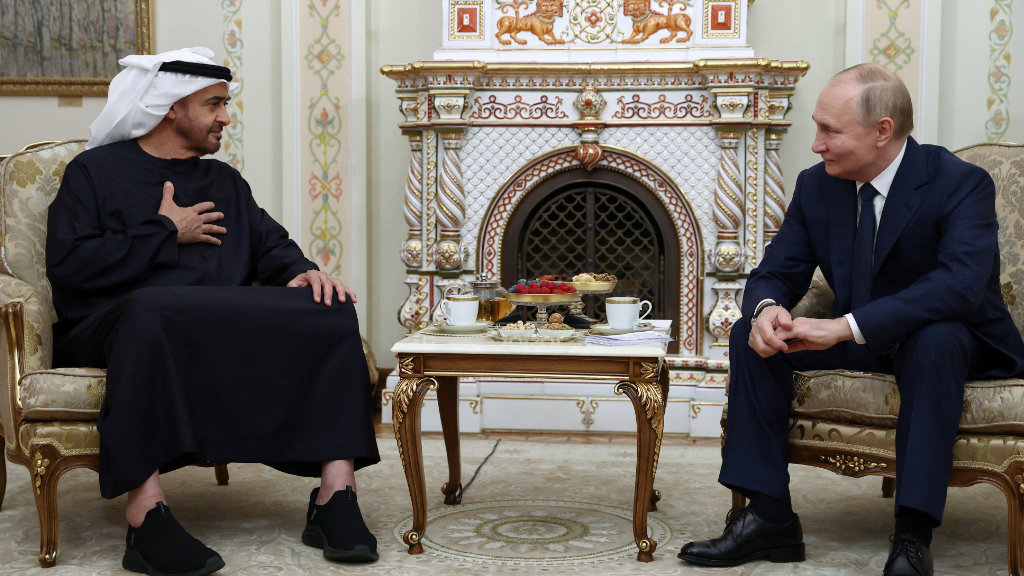
Stabilising the situation in the Islamic Emirate of Afghanistan, requires fundamentally new approaches to relations with this country. It is necessary to ease the military-political tension along such an extensive border, which is also crucial for Russia’s positions in the region, according to AsiaIs, a website devoted to Russia-Asia political analysis. Afghanistan shares the longest border with Central Asian counties at over 2,200 km.
The current Afghan authorities are developing economic ties with all Central Asian countries and Russia, primarily interested in tapping into significant reserves of various energy resources with the help of these countries. This, in turn, contributes to increasing the role of Russia and Central Asian countries in the socio-economic development of Afghanistan. Signals of such a policy from Kabul were evident during the recent international forums Russia-Islamic World (Kazan Forum-2024) and the recent Saint Petersburg International Economic Forum 2024.
Fall out from NATO Occupation & Sanctions
Strategically important is Kabul’s preference for economic partnership with countries that did not participate in the multi-year NATO occupation of Afghanistan. That occupation almost completely destroyed the remaining national economy, with intentions to turn the country into a springboard for various military-political combinations against Central Asian countries, Russia, Iran, and China.
The Taliban, now ruling Afghanistan since 2021, is listed as a terrorist organisation by the United Nations, a position duplicated by many other countries and especially in the West. International sanctions have been imposed against Taliban-controlled Afghanistan, while the United States confiscated Afghanistan Central Bank assets held on deposit for safekeeping and dispersed them instead to American victims of the Al-Qaeda 9-11 attacks.
However, these sanctions are gradually weakening, mainly due to the unified position of Russia, China, Iran, and Pakistan, as well as several other countries, including those from Central Asia, and the Middle East, advocating for the lifting of sanctions against the country.
Taking into account these developments, the Russian Ministry of Foreign Affairs and the Ministry of Justice jointly discussed with President Vladimir Putin last month a proposal to consider excluding the Taliban from the list of banned organisations in Russia. The Special Presidential Representative for Afghanistan, Zamir Kabulov, who announced this, clarified that the exclusion of the Taliban from this list is necessary before its recognition.
In the context of these trends, it is politically important to note that in March 25 2024, the Taliban authorities in Afghanistan recognized the Russian status of Crimea, confirming the decision of the country’s previous leadership dated November 2021.
A reciprocal impulse soon emerged from Kabul: the advisor to the Afghan Foreign Minister Zakir Jalali stated that significant progress has been made in relations between Russia and Afghanistan over the past three years, and the removal of the terrorist organisation’s status will remove the last obstacle to official relations between the countries.
Kazakhstan Recognition
Meanwhile, in early June, Kazakhstan decided to exclude the Taliban from the list of banned organisations. Kazakh President Kassym-Jomart Tokayev noted that this was determined by the importance of developing trade and economic cooperation with modern Afghanistan and understanding that the Taliban is a long-term factor in the country. Afghanistan’s involvement in interregional ties is among the strategic tasks Kazakhstan is involved with.
This means that a basic legal framework is being created for comprehensive development of politico-economic cooperation with Afghanistan and is already showing results. There is active development of economic ties between Afghanistan and China (which has also now officially recognized Taliban-controlled Afghanistan), Iran, India, Pakistan, Turkey, and numerous Arab countries. Afghanistan also receives diverse humanitarian aid from the UN in addition to its nearby countries, including Russia.

Lithium Deposits
Nuriddin Azizi, the acting Afghan Minister of Industry and Trade, stated on May 15 that “The Afghan authorities count on cooperation with Russia in the field of metal extraction.” Noting that his country has very large reserves of copper and lithium (Afghanistan ranks among the first in Asia in terms of Lithium reserves) as well as other resources, Azizi expressed hope that Russian companies will invest in Afghanistan. Lithium is a key component in rechargeable batteries for mobile phones, laptops, digital cameras and electric vehicles.
At the end of September 2022, according to Azizi, the Taliban concluded an economic deal with Russia. According to the Afghan minister, Russia will annually supply approximately 1 million tonnes of gasoline, 1 million tonnes of diesel fuel, 500,000 tonnes of liquefied petroleum gas, and 2 million tonnes of wheat. A little later, Kabulov, the Afghan Special Representative, confirmed that the deal on fuel and grain supplies between the countries has been approved. Kabulov did not specify the price parameters, but noted that the Taliban are ready to supply raisins, medicinal herbs, and minerals in return. These deliveries have already been partially implemented.
Rail Connectivity
Meanwhile, beginning autumn 2023, Kabul has initiated the formation, primarily with the help of Russia, Kazakhstan, and the Central Asian countries, of an additional railway route in the eastern sector of the North-South corridor. This is to run concurrently with the existing Turkmenistan-Afghanistan mainline (Serhetabat-Torghundi), extend through to Herat, and continue southwest through Afghanistan to the Iran and Pakistani ports of Chabahar and Gwadar on the Indian Ocean. This would provide Afghanistan with open ocean access for the first time.
Negotiations are underway for this project: according to Kabul’s official data, agreements have already been reached with Kazakhstan and Turkmenistan on their participation in the project. A relevant transit agreement with the involvement of Tehran and Islamabad is expected to be signed in August this year.
Last March, Afghanistan and Uzbekistan agreed to refine the railway project Termez (Uzbekistan) Mazar-i-Sharif Kabul (Afghanistan) Peshawar (Pakistan). Deliveries of Uzbek electricity, wheat flour, rice, fabrics, and fertilisers will increase. Projects for investment in coal energy, construction industry, and Afghan light industry are being developed. Afghan Deputy Prime Minister Abdul Ghani Baradar noted in this regard that Kabul is promoting an economic-oriented foreign policy with a priority on regional interconnectivity.
Gas Transit
Similar agreements were reached in spring of the current year with Turkmenistan, including on the continuation of supplies of electricity, food, and medicine. In order to ensure regular supplies of Turkmen gas from 2025, it is planned to extend the gas pipeline from the Turkmen Serhetabat to Herat. Turkmen experts have been invited to conduct geological explorations in the Afghan-Turkmen border areas. Turkmenistan is in favour of expanding its partnership with Afghanistan both in the framework of bilateral relations and in the implementation of large-scale regional projects involving other Central Asian and Middle Eastern states.
Hydroelectricity
In turn, Tajikistan and Afghanistan agreed in late December 2023 to increase supplies of hydroelectric power to the Eastern Afghan region and to create a new power line from the south of Tajikistan to the same region with the participation of Turkish and Chinese investors. After a two-year hiatus, the 5th transboundary wholesale-retail market (south of Dushanbe) resumed its work.
Reacting to these positive changes, since autumn 2023, Kabul has been developing a legal framework to establish a regime of maximum economic favouritism for countries that officially recognize Taliban-controlled Afghanistan and develop economic ties with it. This regime is already effectively extended to China.
Maximilian Shepelev, a professor at the Vernadsky Crimean Federal University has stated that “The geopolitical significance of Afghanistan is difficult to overestimate, and Russia’s key task is to prevent the country from becoming a springboard for anti-Russian movements in the region with the support of the USA. China has already recognized the Taliban as an effective government in Afghanistan, is actively developing relations with it, and Russia should follow a similar path.”



